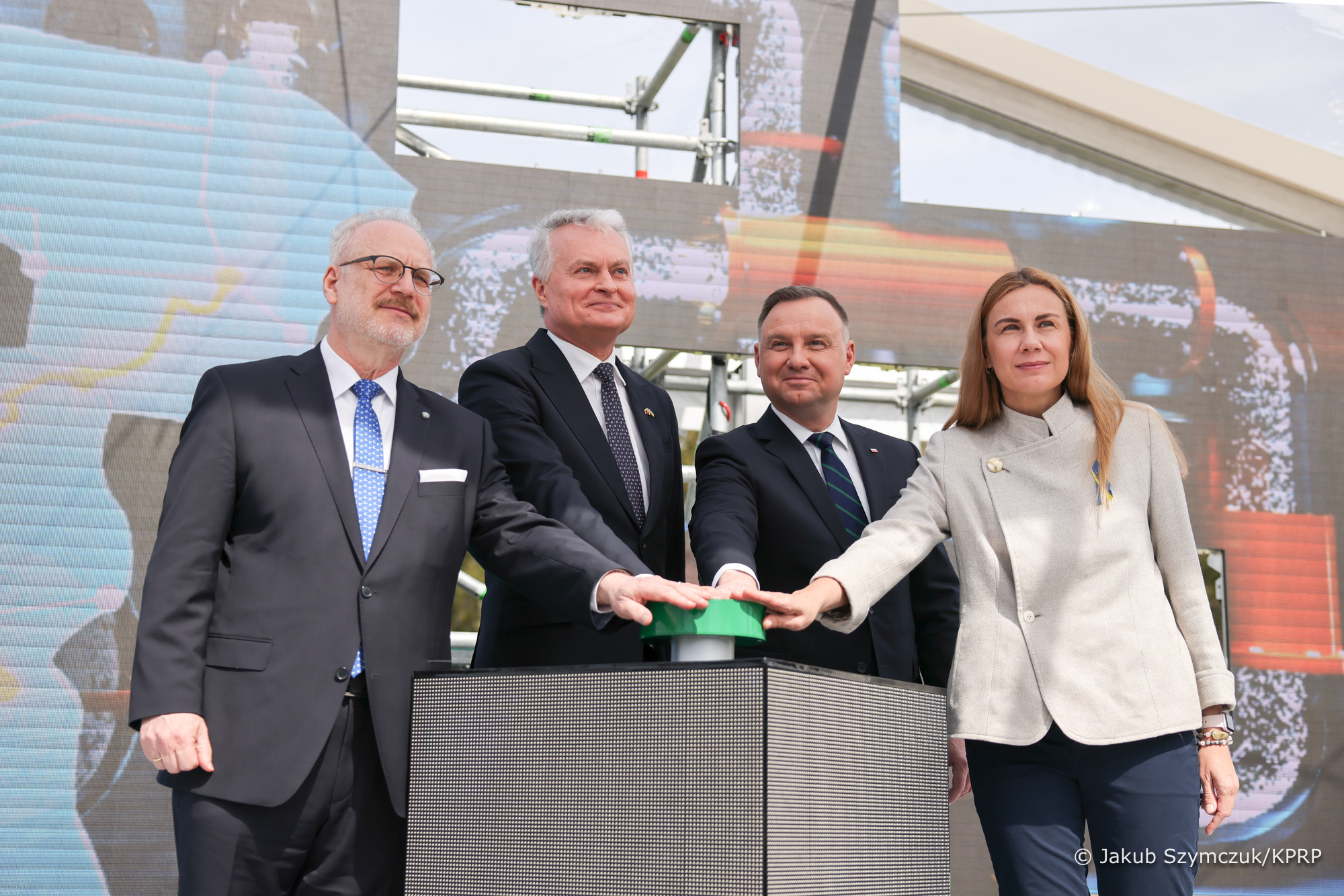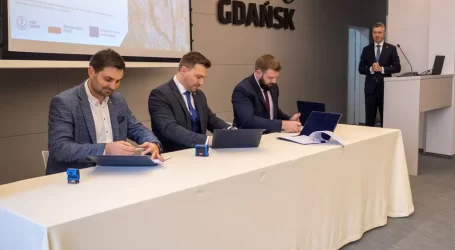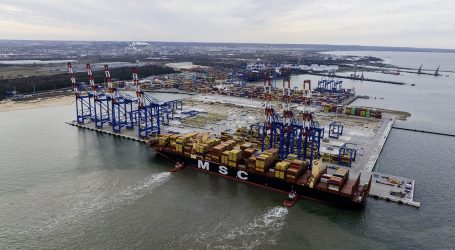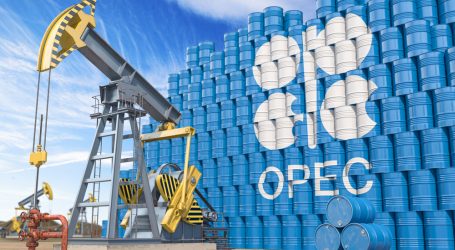Thanks to the new gas connection with Lithuania, Poland gains access to the Klaipeda terminal, which strengthens the level of security of gas supplies to Polish consumers, government plenipotentiary for strategic energy infrastructure Piotr Naimski said, as quoted in a Gaz-System statement on Thursday.
The ceremonial opening of this interconnector took place on Thursday, May 5 at the Jauniunai compressor station in Lithuania with the participation of the President of the Republic of Poland Andrzej Duda and the President of Lithuania Gitanas Nauseda. The commercial transmission of gas through the new gas pipeline connecting Poland with Lithuania, the so-called GIPL, started on May 1 this year.
– Today, ahead of the previously announced schedule, we are launching gas transmission via the Polish-Lithuanian interconnector. Poland is gaining access to the Klaipeda terminal, which is strengthening the security of gas supplies to Polish consumers. Lithuania, Latvia and Estonia are ending their period of gas isolation, through Poland connecting their transmission systems with the large European market, offering the possibility of obtaining this raw material at competitive market prices – said Minister, Government Plenipotentiary for Strategic Energy Infrastructure Piotr Naimski.
He added that “together we are also strengthening our countries’ resilience to the gas crisis we are experiencing.
– In the situation created by the Russian aggression near our borders, the GIPL – along with the investments implemented by Gaz-System, such as the Baltic Pipe, the interconnector with Slovakia and the expansion of the LNG Terminal in Świnoujście – makes it easier for Europe to break the bonds of dependence on the unreliable and aggressive supplier from the East – Naimski underscored.
According to Lithuanian Energy Minister Dainius Kreivys, quoted in the Gaz-System’s information, the launch of GIPL is a historic event not only for Lithuania and Poland, but also for the entire energy sector in the region. The Lithuania-Poland gas interconnection will ensure the security of gas supply to the Baltic States and will strengthen our energy independence, which is extremely important in the context of current geopolitical events.
– The connection connecting the gas systems of Poland and Lithuania, which we are opening today, is the first of the new interconnectors that Gaz-System will launch this year. It is thanks to projects such as the GIPL that our national gas system becomes more resilient to disruptions in gas supplies and that countries such as Lithuania, Latvia, Estonia and Finland gain access to a new gas corridor from the European market,” emphasised Gaz-System President Tomasz Stępień.
– The Lithuanian-Polish cross-border gas pipeline GIPL is the missing part of the Lithuanian energy system, which is important not only for ensuring energy security but also from the perspective of affordability of energy resources for consumers. The Baltic States and Finland have finally gained a wide choice of gas suppliers in the open continental European market, while Poland has a new, alternative source of gas supply. The GIPL gas pipeline, together with the LNG terminal in Klaipeda and the ELLI project which will double the gas transmission capacity between Lithuania and Latvia, will make the regional gas market reach a completely new level of competitiveness – said Amber Grid CEO Nemunas Biknius.
Gaz-System said that the 508-kilometre GIPL pipeline connected the gas transmission systems of Poland and Lithuania, which are managed by the operators Gaz-System and Amber Grid. From 1 May, the interruptible capacity for the direction from Lithuania to Poland will be 2.4 GWh/h, which is equivalent to 1.9 bcm/year. The throughput capacity for the direction from Poland to Lithuania will be 2.6 GWh/h, which corresponds to 2 bcm/year. The GIPL will reach its full capacity in October 2022.
It was added that the GIPL project was aimed at creating a bidirectional gas transmission pipeline linking the natural gas transmission systems of Poland and Lithuania, which will eliminate the so-called energy islands, i.e. regions so far not integrated into the EU energy market, such as Lithuania, Latvia and Estonia, as well as Finland.
It was also indicated that the construction of the gas pipeline is an investment that has the status of a “Project of Common Interest (PCI – Project of Common Interest) and is co-financed by the European Union under the Connecting Europe Facility (CEF – Connecting Europe Facility) and “Trans European Networks – Energy (Trans European Networks – Energy – TEN-E).
source: PortalMorski.pl




